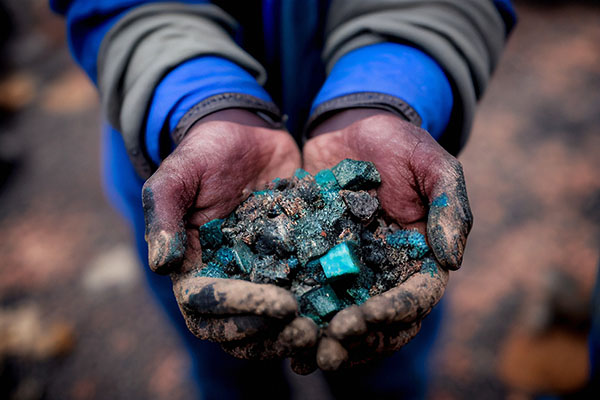
- The U.S. is in early talks with the DRC to secure access to critical minerals like cobalt and lithium in exchange for military aid and security assistance.
- The DRC faces escalating violence from Rwanda-backed M23 rebels, displacing thousands and destabilizing mineral-rich eastern regions.
- The proposed deal aims to counter China’s dominance in the global supply chain for advanced technologies and clean energy resources.
- Challenges include corruption, environmental concerns, and ongoing conflict in the DRC’s mineral-rich areas.
- The partnership could reshape U.S. influence in Africa and bolster the global clean energy race, but significant obstacles remain.
The United States is in early-stage talks with the Democratic Republic of Congo (DRC) to secure access to its vast reserves of critical minerals, including cobalt, lithium, and uranium, in exchange for military aid and security assistance.
The discussions come as the DRC grapples with escalating violence in its eastern provinces, where Rwanda-backed M23 rebels have seized key territories and displaced thousands. The proposed deal, which could reshape U.S. influence in Africa’s resource-rich regions, reflects Washington’s growing interest in countering China’s dominance in the global supply chain for advanced technologies.
The DRC, home to an estimated $24 trillion in untapped mineral reserves, has long been a focal point for global powers seeking access to resources essential for electric vehicles, aerospace, and defense industries. However, the country’s eastern regions, rich in cobalt and lithium, have become a battleground for rebel groups, with the M23 insurgency causing widespread instability. In January alone, the conflict claimed an estimated 7,000 lives, according to Congolese Prime Minister Judith Suminwa.
The DRC has accused Rwanda of backing the M23 rebels, a claim supported by Western nations but vehemently denied by Kigali. In a bid to stabilize the region, Congolese officials have reached out to the U.S. for military support. “The United States is well-positioned to forge an enduring partnership with the DRC — a nation that possesses over $24 trillion in untapped reserves of critical minerals,” wrote Senator Pierre Kanda Kalambayi in a letter to U.S. Secretary of State Marco Rubio.
Security assistance in exchange for resource access
The proposed deal would grant American companies exclusive mining rights in the DRC in exchange for U.S. military training, equipment, and support to combat the M23 insurgency. “There is a desire for us to diversify our partners,” said Congolese government spokesman Patrick Muyaya, noting that “daily exchanges” between the two nations are underway.
The U.S. State Department has expressed openness to the partnership, emphasizing its alignment with the Trump administration’s “America First” agenda. “The DRC has a significant share of the world’s critical minerals required for advanced technologies,” a State Department spokesperson told Reuters.
However, challenges remain. The DRC’s mineral-rich regions are mired in conflict, and American companies have largely avoided investing in the country due to concerns over corruption, environmental degradation, and exploitation. “If the Congolese want to make this work, it will probably not be by offering a U.S. company a mining concession,” said Jason Stearns, a Congo expert at Simon Fraser University. “They’ll have to look at more complicated ways of engaging the U.S.”
A counter to China’s dominance
The potential deal also underscores Washington’s efforts to reduce its reliance on China for critical minerals. China currently dominates the DRC’s mining sector, controlling much of the cobalt supply chain, which is vital for electric vehicle batteries. By securing access to Congolese resources, the U.S. aims to bolster its position in the global clean energy race.
However, the path to a finalized agreement is fraught with obstacles. The DRC’s eastern provinces remain a volatile conflict zone, and any U.S. involvement would require significant investment in security and infrastructure. “It seems a far-flung idea and rather desperate,” said Stephanie Wolters, an expert on Africa’s Great Lakes region. “They [Kinshasa] are on the ropes militarily, and whatever they might realistically get would be in the longer term.”
As the U.S. and the DRC navigate the complexities of a potential minerals-for-security deal, the stakes are high for both nations. For the DRC, the partnership offers a lifeline in its fight against rebel groups and an opportunity to diversify its economic alliances. For the U.S., it represents a chance to secure critical resources and counter China’s growing influence in Africa. While the talks are still in their infancy, the outcome could have far-reaching implications for regional stability and the global race for clean energy dominance.
Sources for this article include:
Please contact us for more information.





















